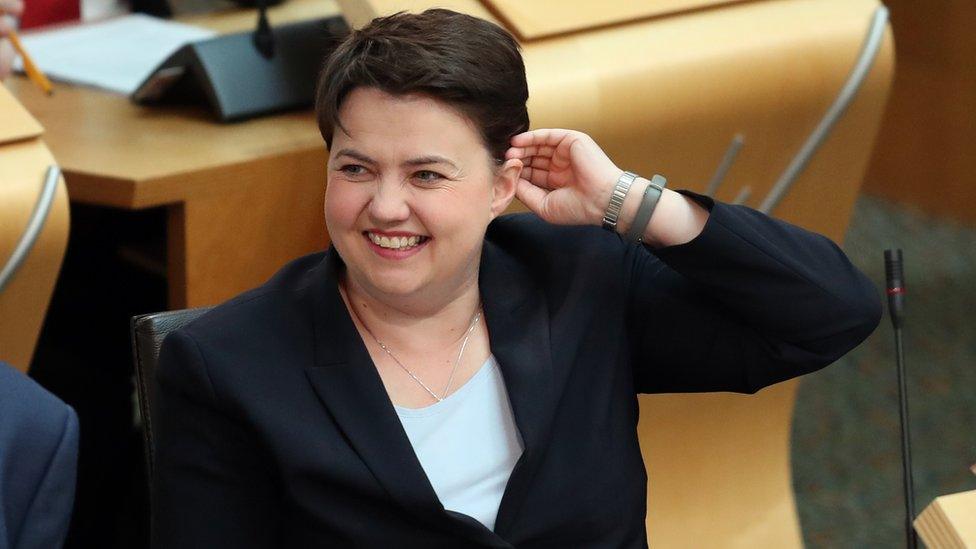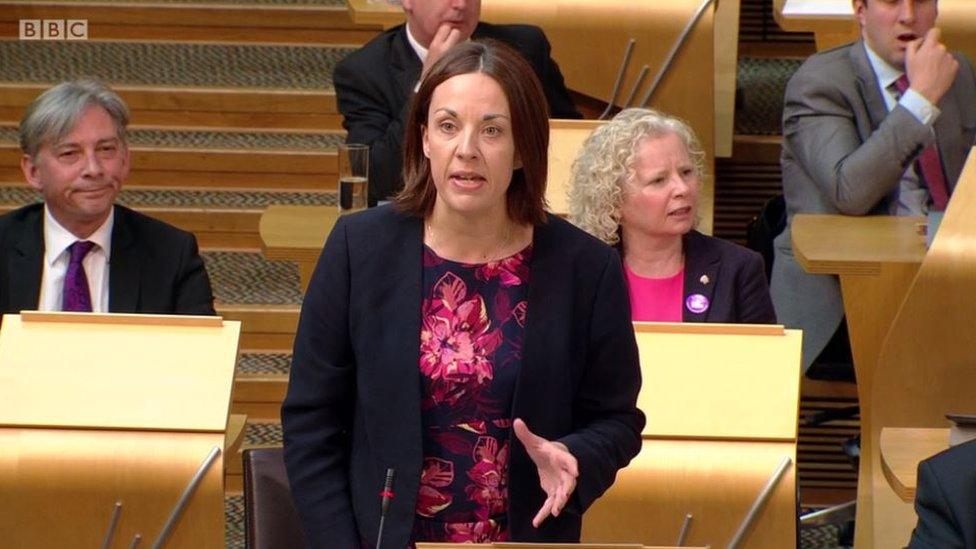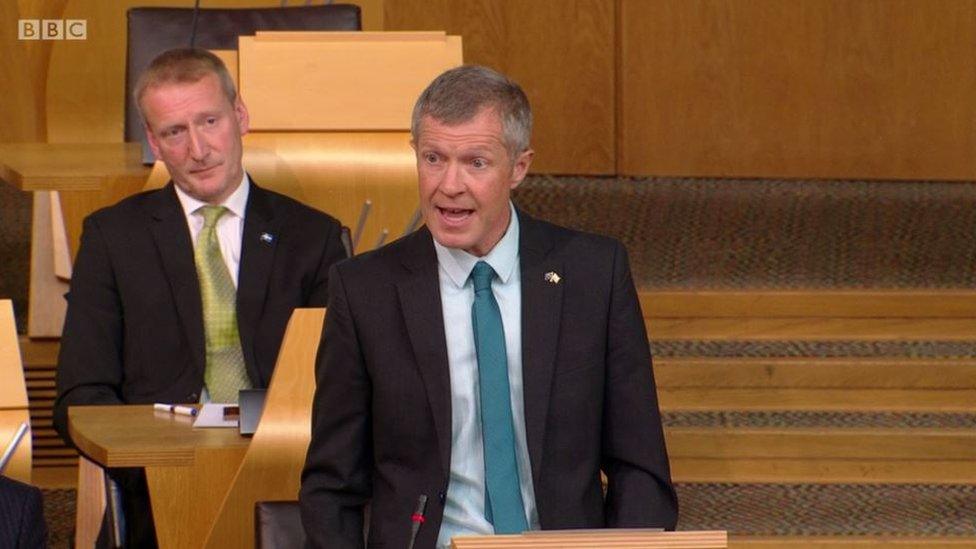No time for subtlety at a formulaic FMQs
- Published

Nicola Sturgeon faced questions on a range of domestic issues at Holyrood
There was, it should be said, a formulaic feel to First Minister's Questions. That is not remotely surprising, given that we are but a week away from the UK general election.
This is not the time for subtlety. It is time to deliver core messages, volubly and repeatedly. In Scotland, the SNP are the current champions, defending 56 out of 59 Scottish seats at Westminster.
Hence, they are the target for every opponent, regardless of political predilection. That factor amplified the pre-existing nature of questions to the first minister (the clue is in the title).
And so Ruth Davidson for the Tories challenged Nicola Sturgeon on her government's record in education, with particular regard to the training and recruitment of teachers.
Her point was that, some seven years ago, the Scottish government had got it wrong by reducing the number of college places. Nicola Sturgeon noted that was in response to an apparent superfluity of pedagogues at the time. Matters had changed since.
Then Ms Davidson got to her core point; an invitation to Ms Sturgeon to spend less time obsessing about a referendum, and more time sorting out Scottish schools.

Ruth Davidson led questioning on education and teacher numbers
Thus was the formula set. Raise an issue of government record, then assert it has been neglected in favour of independence.
Nicola Sturgeon fought back vigorously. She made comparisons: her government was investing in education while elsewhere in the UK there were further cuts on the horizon.
She attempted to raise a related issue which is directly salient in these UK elections, education being devolved. On this occasion, that was the question of child poverty which she forecast would worsen under Conservative UK rule.
Once again, though, the FM's verdict on education was somewhat cautious, somewhat constrained. She lauded endeavour by pupils, she praised their teachers for coaching them through exams. But she had to acknowledge, more than once, that the overall record is less than perfect, that there is room for further improvement.

Kezia Dugdale asked Nicola Sturgeon about hospital waiting times
The formula was sustained when Labour's Kezia Dugdale got to her feet. Her question was on hospital waiting times.
Opening gambit? Waiting time statistics are poor and missing targets. Conclusion? The FM should concentrate on the day job and sideline independence.
The response from the FM was similar to that deployed earlier. She made comparison with performances elsewhere, notably in Wales where Labour is in power.
And she disavowed suggestions that she obsessed about independence, to the exclusion of anything else. Indeed, she argued that her rivals were in competition as to who might mention the referendum first.

Willie Rennie went with a question about maternity services in Caithness
Then it was Willie Rennie's turn. The Scottish Lib Dem leader raised the topic of maternity services in Caithness - the subject of substantial and prolonged concern in the area. Expectant mothers, he said, were deeply worried that they might have to travel down the A9 for care, in certain circumstances.
Following the formula, he also implied that there should be a greater focus on such matters and less upon the constitution.
Ms Sturgeon said that the changes to provision in Caithness had been made at the behest of clinicians, based upon patient safety. She acknowledged the concerns - then voiced the hope that the issue might be addressed without party politics intervening.
In response, Mr Rennie took considerable exception to this. He had not been politicking. He had raised a topic of genuine concern, as he was entitled to do.
Ms Sturgeon might have responded by pointing out that the Lib Dem leader had been campaigning in Wick only this week, duly raising the topic of hospital provision. But wiser counsel prevailed and she insisted that she had not remotely intended to impugn his integrity.